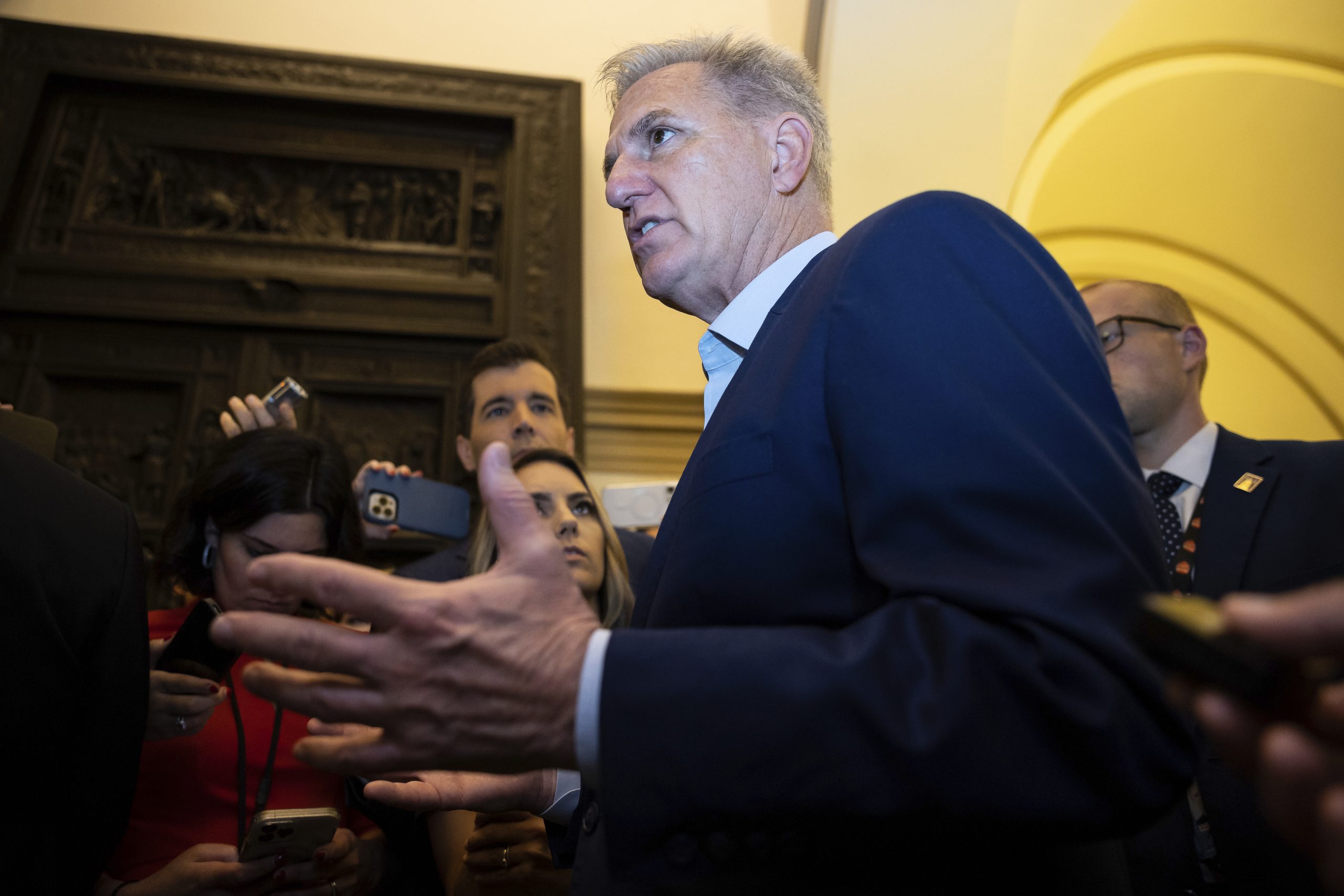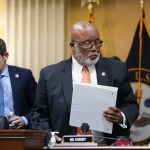Spending packages. The farm bill. Defense legislation.
Congress’ knockdown fight over what was once its most mundane activity — raising the debt ceiling — is claiming an unintended victim: the rest of its must-pass agenda.
The negotiations between the Biden administration and House Republicans boil down to a handful of people. But Washington’s fixation on the slow-moving talks, combined with months of jockeying on both ends of Pennsylvania Avenue, has led to a legislative pileup.
“It’s very frustrating,” said Rep. Frank Lucas (R-Okla.), about some of the House’s delayed priorities. “But until you know how much money you have to work with,” he added, referring to potential spending cuts in a debt deal, “you can’t do these things.”
That’s not to say Congress has ground to a halt. There’s also committee-level work happening behind the scenes. But the calamitous consequences of debt default are so all-consuming that lawmakers’ other deadlines — each with potentially terrible effects of their own — seem far away, at least for the moment.
Many Republicans hope the saga will end in the coming days, with party leaders on both sides seeking to pass a deal before the default deadline on June 5. Yet some Republicans have wondered aloud if the U.S. can continue to stretch its borrowing limit even further, possibly past June 15 or even into the summer.
That more fluid timeline prompts a different kind of panic for GOP leaders, who are staring down enormous deadlines this fall on spending, Pentagon policy and the farm bill.
The most obvious issue is Republicans’ spending bill push. Speaker Kevin McCarthy has vowed to pass all 12 bills on the floor — a departure from recent years when congressional leaders would compile a massive spending package mostly behind closed doors — which will be a particularly difficult feat with a four-vote margin. But the House can barely start any work on that process yet, as lawmakers feel handcuffed by debt talks that will potentially dictate funding totals.
Instead, House spending leaders last week postponed markups for four of its bills, citing “recent developments” in the talks between McCarthy and President Joe Biden. (Republicans also worried they didn’t have the votes to pass those packages, given one GOP lawmaker’s absence.)
“We didn’t want to distract from the debt ceiling negotiation. … We don’t need to be the center of attention and, again, we need final numbers,” said Rep. Tom Cole (R-Okla.), a senior member of the appropriations panel and McCarthy ally.
And it’s not just appropriators who have started to sweat. The House Armed Services Committee had to delay considering its mammoth annual policy bill for the Pentagon, though with a deadline in December it has a little more time. And while lawmakers have every intention of passing it by then, for the 63rd year in a row, some members, particularly Democrats, have hammered the months-long delay.
“When it gets pushed back for other political reasons, I think it sends really bad messages out there,” Rep. Ruben Gallego (D-Ariz.) said. “The message is that the United States has taken his eye off the ball with national security because we’re trying to deal with internal domestic issues. And it’s something that I think Russia and China can really exploit in terms of trying to pull people away from our alliance.”
The delay on the massive defense package also slowed down talks on a high-profile effort to repeal authorizations for the Iraq War, which has merged with discussions on the annual package.
The Senate passed its bill on the matter earlier this year. But the House still needs to iron out divisions in its ranks, as some support a straight repeal and others, like Foreign Affairs Chair Michael McCaul (R-Texas), have floated replacing it — potentially folding in a trickier rewrite of the 2001 authorization passed after the Sept. 11 attacks.
Rep. Chip Roy (R-Texas), who supports repealing the 2002 authorization and helped introduce the House’s bill, acknowledged that movement on the debate is likely on hold until after the debt ceiling: “We’ve got to deal with the pressing issues of the moment.”
“I’m just not all that interested in the press conferences … on all those other issues until we deal with these true existential threats that we’re dealing with,” he added.
Then there’s a tricky debate surrounding a controversial FBI surveillance program, which expires at the end of the year. A bipartisan group has continued to talk behind the scenes on how to reauthorize the authority, known as Section 702, but lawmakers know they need time to educate their colleagues, many of whom are going through the debate for the first time. Rep. Darin LaHood (R-Ill.), who is leading those talks, acknowledged that “the debt ceiling talks are keeping everybody busy now.”
Plus, the House and Senate have been forced to delay work on this year’s $1 trillion farm bill package. Without action, key agriculture and nutrition programs will expire in September, with many lawmakers and aides expecting they’ll have to punt the deadline, perhaps into next year.
Lucas, a former House agriculture chair, said this year’s farm bill will be particularly tricky given the massive economic changes over the last four years, including Covid, inflation, a trade war with China and the war in Ukraine.
“And that’s just the farm bill,” he said. “Think about everything else that’s going on here.”
Connor O’Brien contributed to this report.


















